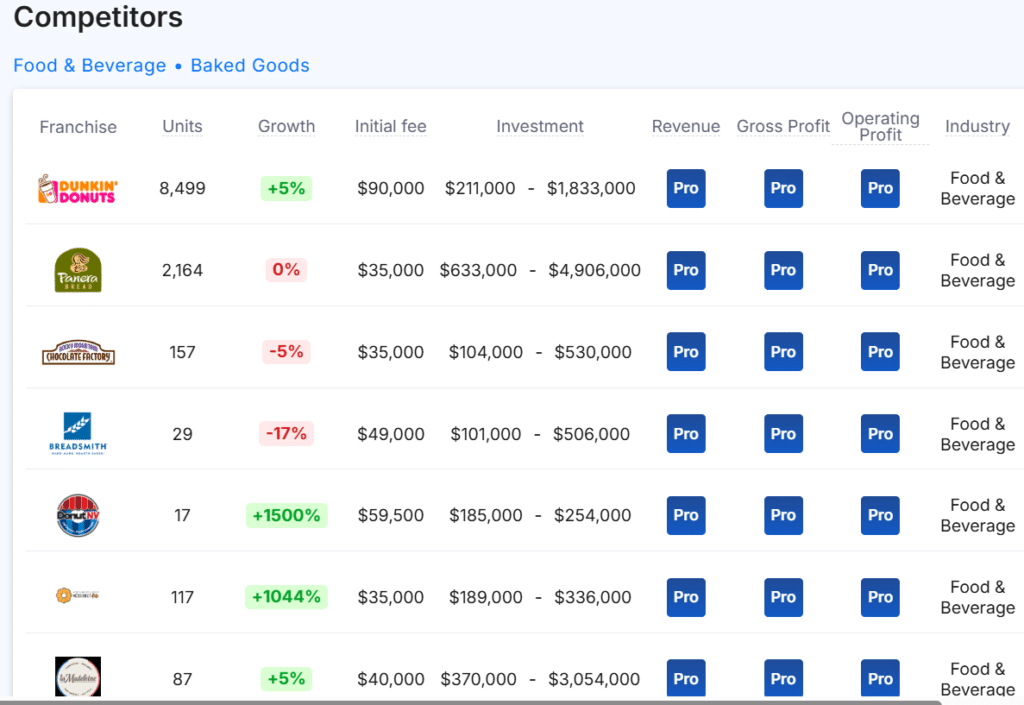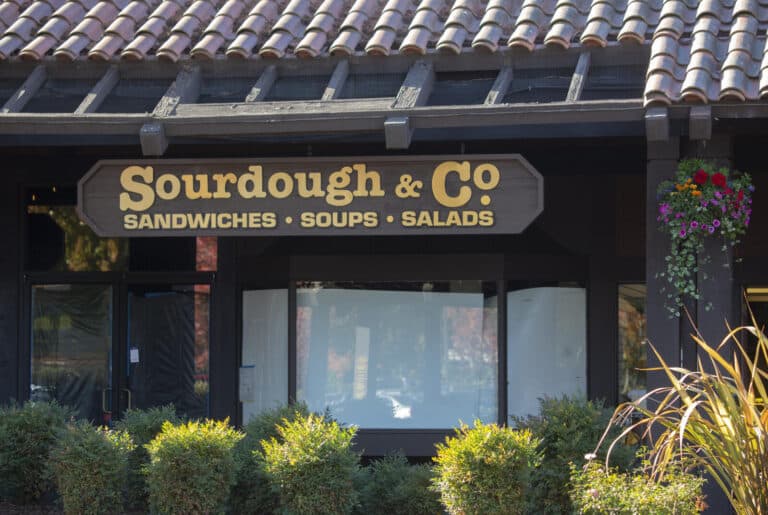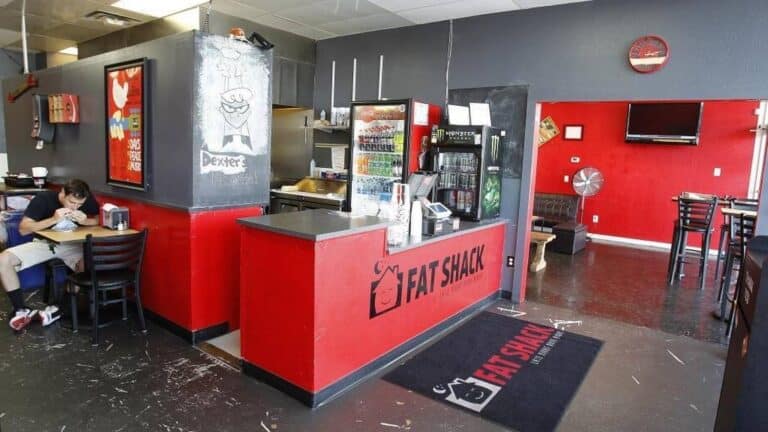Dunkin’ Donuts Franchise FDD, Profits & Costs (2025)

Dunkin’, founded in 1950 by William Rosenberg in Quincy, Massachusetts, originally started as “Open Kettle” before rebranding. The first franchise opened in 1955, and by 1965, Dunkin’ had over 100 locations.
Today, Dunkin’ operates more than 12,600 restaurants across 46 countries, making it a global leader in coffee and baked goods.
Headquartered in Canton, Massachusetts, Dunkin’ is known for its donuts, bagels, breakfast sandwiches, and a wide range of coffee options. The brand’s Dunkin’ Rewards program enhances customer loyalty by offering points on every purchase.
Dunkin’ has shifted its focus to becoming a beverage-led, on-the-go brand, introducing Cold Brew Coffee, Nitro Coffee, and unique products like Donut Fries.
Initial Investment
How much does it cost to start a Dunkin’ Donuts franchise? It costs on average between $211,000 – $1,833,000 to start a Dunkin’ franchised restaurant.
This includes costs for construction, equipment, inventory, and initial operating expenses. The exact amount depends on various factors, including the type of restaurant you choose, the location, and whether the franchisee chooses to lease or purchase the property. Dunkin’ Donuts offers 4 types of franchises:
| Business Type | Initial Investment Range |
|---|---|
| Gas & Convenience Restaurants | $210,900 to $1,065,500 |
| Shopping Center/Storefront | $437,500 to $1,333,500 |
| Freestanding | $526,900 to $1,832,500 |
We are summarizing below the main costs associated with opening a Freestanding Dunkin’ franchised restaurant. For more information on the costs required to start a Dunkin’ franchise, refer to the Franchise Disclosure Document (Item 7).
Freestanding Dunkin’ Restaurant
| Type of Expenditure | Amount |
|---|---|
| Initial Franchise Fee | $40,000 – $90,000 |
| Subtotal | $40,000 – $90,000 |
| Building Costs | $180,000 – $600,000 |
| Site Development Costs | $13,000 – $350,000 |
| Additional Development Costs | $12,000 – $90,000 |
| Equipment, Fixtures & Signs | $189,000 – $300,000 |
| Restaurant Technology System | $65,000 – $118,000 |
| Licenses, Permits, Fees and Deposits | $3,500 – $7,500 |
| Subtotal | $462,500 – $1,465,500 |
| Real Estate Costs | Variable |
| Opening Inventory | $8,000 – $20,000 |
| Miscellaneous Opening Costs | $9,500 – $70,000 |
| Uniforms | $400 – $3,000 |
| Insurance | $4,500 – $16,000 |
| Training Related Expenses | $2,000 – $50,000 |
| Marketing Start-Up Fee | $0 – $10,000 |
| Additional Funds for First 3 Months of Operation | $0 – $108,000 |
| Subtotal | $24,400 – $277,000 |
| Total | $526,900 – $1,832,500 |
Average Revenue (AUV)
How much revenue can you make with a Dunkin’ Donuts franchise? A Dunkin’ franchised restaurant makes on average $1,240,000 in revenue (AUV) per year. This is across all formats the franchise offers (freestanding and others).
Here is the extract from the Franchise Disclosure Document:

This compares to $788,000 yearly revenue for similar baked goods franchises. For example, below are a few Dunkin’ competitors:

Download the Franchise Disclosure Document
Frequently Asked Questions
How many Dunkin’ locations are there?
As of the latest data, Dunkin’ operates over 8,499 locations across the United States. This includes around 8,465 franchise-owned outlets and approximately 34 company-owned locations. Dunkin’ relies heavily on its franchise model to maintain its widespread presence across the country.
What is the total investment required to open a Dunkin’ franchise?
The total investment required to open a Dunkin’ franchise ranges from $211,000 – $1,833,000 for the freestanding restaurant format.
What are the ongoing fees for a Dunkin’ franchise?
Dunkin’ franchisees are required to pay a 5.9% royalty fee on gross sales. Additionally, there is a marketing and advertising fee of 5% of gross sales, which includes national and local advertising efforts. Franchisees are also subject to a technology fee that typically amounts to around $300 per month.
What are the financial requirements to become a Dunkin’ franchisee?
To qualify for a Dunkin’ franchise, prospective franchisees must have a minimum net worth of $500,000 and liquid assets of at least $250,000. These financial requirements ensure the ability to cover both the initial and ongoing operational costs.
How much can a Dunkin’ franchise owner expect to earn?
The average gross sales for a Dunkin’ franchise are approximately $1.24 million per location. Assuming a 15% operating profit margin, $1.24 million yearly revenue can result in $186,000 EBITDA annually.
Who owns Dunkin’ Donuts?
Dunkin’ Donuts is owned by Inspire Brands, a multi-brand restaurant company. Inspire Brands acquired Dunkin’ in December 2020 for approximately $11.3 billion. This acquisition added Dunkin’ Donuts and its sister brand, Baskin-Robbins, to Inspire’s portfolio, which also includes well-known restaurant chains such as Arby’s, Buffalo Wild Wings, and Sonic Drive-In.
Disclaimer
Disclaimer: This content has been made for informational and educational purposes only. We do not make any representation or warranties with respect to the accuracy, applicability, fitness, or completeness of the information presented in the article. You should not construe any such information or other material as legal, tax, investment, financial, or other professional advice. Nothing contained in this article constitutes a solicitation, recommendation, endorsement, advertisement, or offer to buy or sell any franchises, securities, or other financial instruments in this or in any other jurisdiction in which such solicitation or offer would be unlawful under the franchise and/or securities laws of such jurisdiction.
All content in this article is information of a general nature and does not address the detailed circumstances of any particular individual or entity. Nothing in the article constitutes professional and/or financial and/or legal advice, nor does any information in the article constitute a comprehensive or complete statement of the matters discussed or the law relating thereto. You alone assume the sole responsibility of evaluating the merits and risks associated with the use of any information or other content in this article before making any decisions based on such information or other content.




